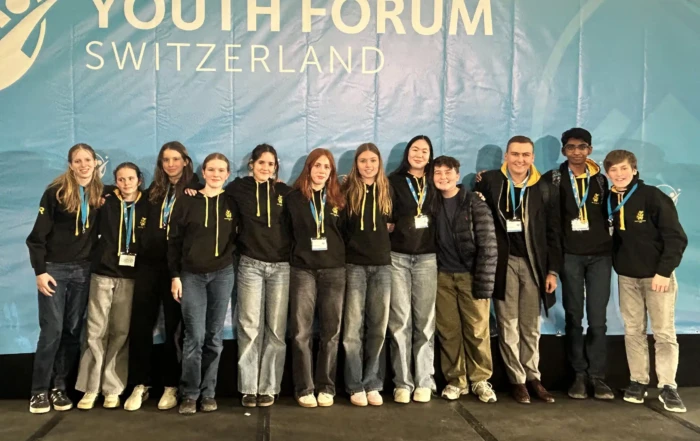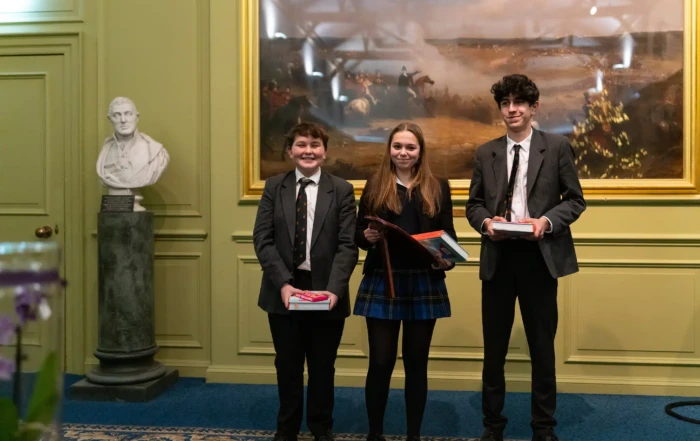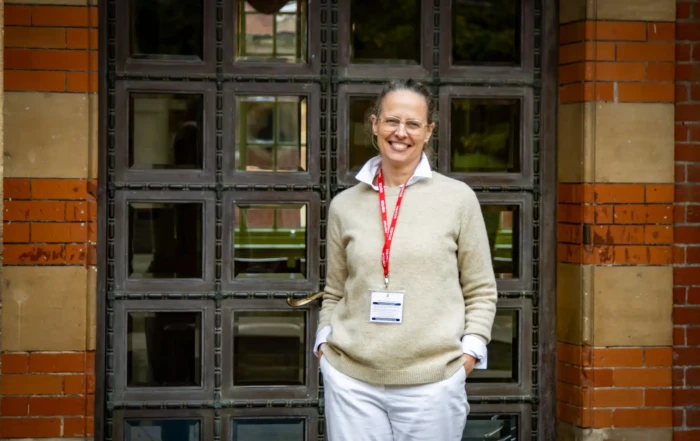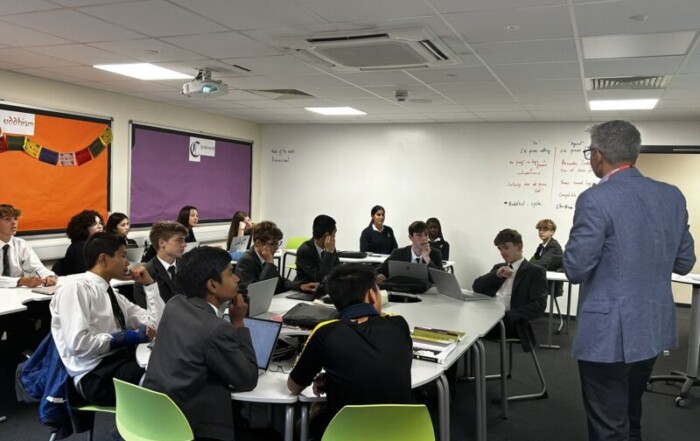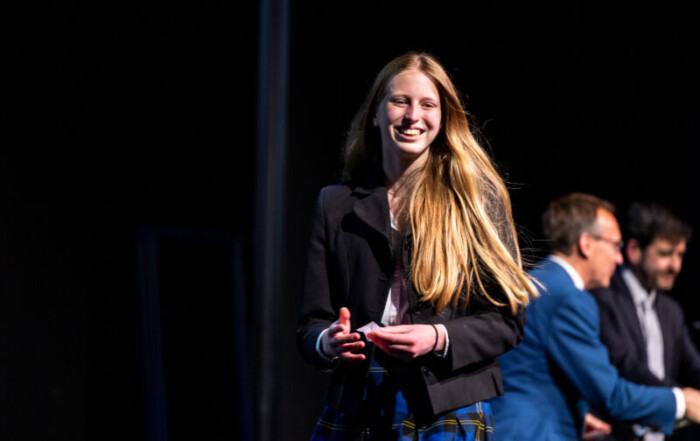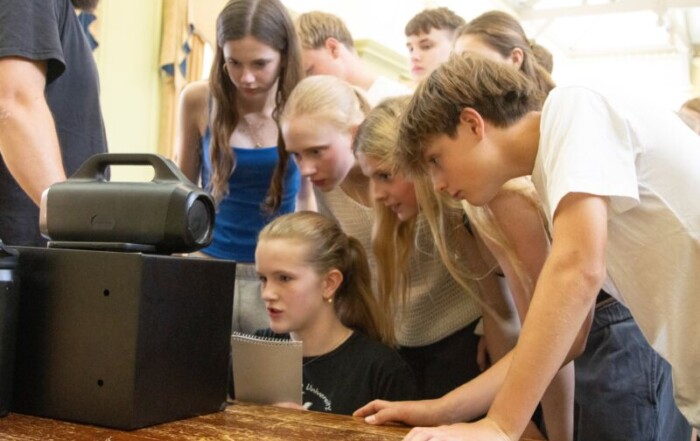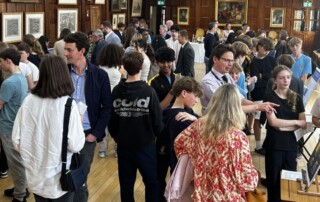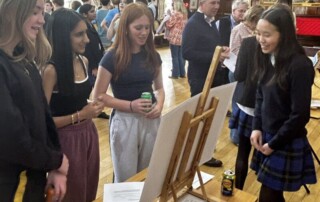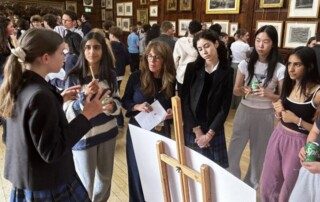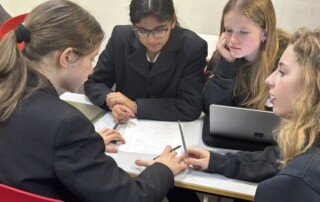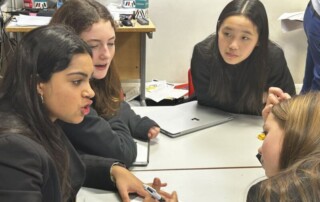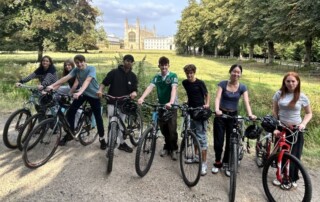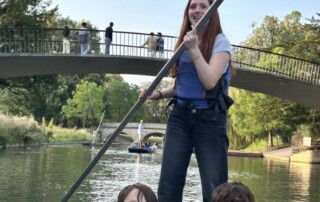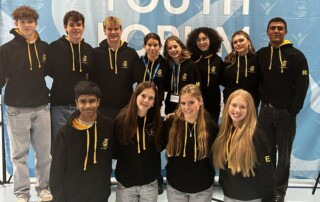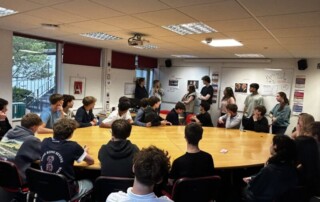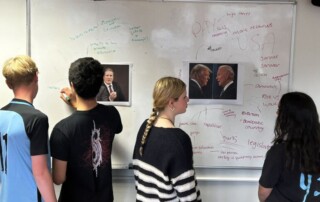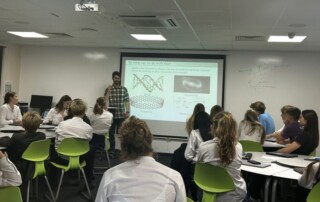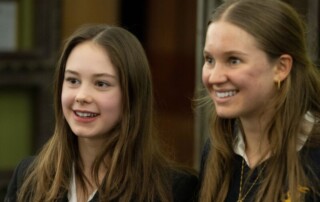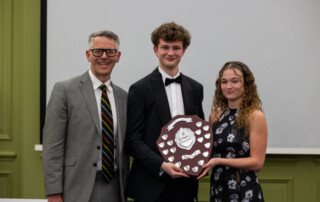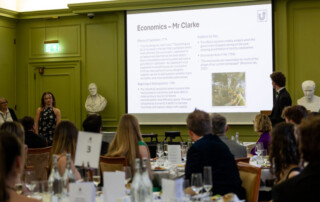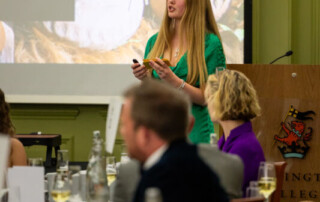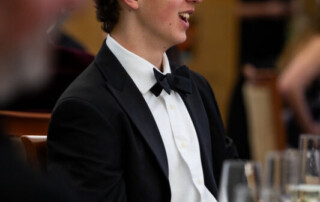
The Wellington College Academic Scholarship Programme
Process for Awarding Academic Scholarships
At Wellington, academic scholarship is an attitude of mind not simply a description of intelligence. It involves fostering intellectual curiosity and creativity in our pupils and developing within them a passion for learning and independent thinking. We consider scholars to be representatives of scholarship in the school: they are not just hard workers but have a genuine and sustained interest in academic life beyond the curriculum alone.
At 13+ a small number of Academic Scholarships are offered before entry to the College via an examination and interview process that takes place during Year 8. The majority of the scholarships including the College’s seven highest academic accolades – our named Scholarships – are awarded at the end of the Third Form (Year 9). All students are considered for Academic Scholarships on the basis of the selection criteria below, there is no need to apply. All academic scholarships carry prestige and entitle pupils to join the Academic Scholarship Programme but are not attached to fee remission. From the start of Fourth Form (Year 10) we have approximately 24 Academic Scholars involved in the Academic Scholarship Programme.
Mindful that students develop at different ages, there is always an opportunity to join the programme at a later stage, typically one or two students will be invited to attend the Scholarship programme first on an invitational basis and then be awarded a full Academic Scholarship if they meet the criteria each year.
At 16+ a small number of additional Academic Scholarships are awarded to pupils prior to joining the school. Academic Colours are awarded on the basis of outstanding GCSE results. Any recipients of Academic Colours that are not already Academic Scholars plus any scholarly incoming lower sixth pupils are invited to join the Academic Scholarship Programme on an invitational basis. At the end of the Michaelmas term of their Lower Sixth, approximately ten of these students are then elevated to full Academic Scholars.
Selection criteria
Selection for academic scholarships will be made by a selection committee, on the basis of:
- Overall academic performance throughout the year
- Conversations and feedback with HM, tutor and teachers
- Quality of Malim project submissions
- Lesson observations by the selection committee
- Demonstration of academic leadership in terms of role modelling and fostering intellectual curiosity
- Engagement with academic extension.
Purpose and Aims of the Academic Scholarship Programme
The Academic Scholarship Programme at Wellington College is designed to foster intellectual growth, curiosity, and a well-rounded academic experience for scholars. The programme is structured around five core aims:
- Intellectual Curiosity: Encouraging students to deepen their understanding by exploring new perspectives, fostering open-mindedness and inquisitiveness.
- Intellectual Humility: Promoting a culture of lifelong learning, where students appreciate the vast scope of knowledge yet to be discovered.
- Belonging: Building a sense of community through meaningful debates and discussions, creating a supportive learning environment.
- Connections: Encouraging interdisciplinary approaches to problem-solving and critical thinking across various fields.
- Enjoyment: Ensuring that learning is an enjoyable journey of discovery, where students find pleasure and fulfilment in their academic pursuits.

News and Events
Wellington’s global change-makers discuss new horizons in Switzerland
A small delegation of Academic Scholars represented Wellington College at the Youth Forum Switzerland 2025 New Horizons, hosted at the International School of Zug & Luzern. This prestigious event serves as a platform for today’s [...]
Peter Mallison Prize for Academic Extension 2024
Public speaking is a skill that many young teenagers find daunting. Yet, through practice and perseverance, it becomes a gateway to an invaluable trait: confidence. At Wellington College, we understand the transformative power of [...]
Enhancing Scholarly Development through Experiential Learning in Cambridge
Our Fourth Form Academic Scholars took part in a short residential trip to Cambridge over the Bank Holiday weekend, with the aim of furthering the programme’s goals of fostering intellectual curiosity, intellectual humility, belonging, connections [...]
Academic in residence: Jennifer Brandsberg-Engelmann
We are thrilled to welcome Jennifer Brandsberg-Engelmann as our latest Academic in Residence at Wellington College. A renowned educator with over 25 years of experience, Jennifer is a leading voice in economics education. Her [...]
Shriyaa’s taking Mathematics by storm!
New Wellington College pupil, Shriyaa V, has immediately served notice that she is an exceptional mathematician. While at her previous school Cargilfield, Edinburgh she was encouraged to take part in The British Society for [...]
Game Theory
Brilliant session with @ExponentialMind encouraging our 4th Form Scholars to grapple with the ideas of game theory and backwards induction. Seriously impressive logic and strategy on display. [...]
New Third Form Academic Scholars
Thank you to @Welly_Master for formally awarding our new Third Form Academic Scholars their ties and pins in front of parents and grandparents at the Third Form Celebration Event. [...]
Bank Thieves
A fun, albeit rather competitive, finish to this year's Academic Scholarship Programme as our scholars collaborated acting as professional bank thieves to break out of police custody and take home the gold aka V&A vouchers. [...]

Year-by-Year Breakdown of Activities and Skills Development
Third Form (Year 9)
Weekly Sessions: Scholars meet weekly on Tuesdays at 4:30 pm for a variety of “taster” sessions across a wide range of subjects, including History of Art, Ecology, Existentialism, Economics, Engineering, Music Technology, Shakespeare, and Linguistics.
Reflection and Research: Students are encouraged to reflect on these sessions and conduct further research on a chosen topic, which they then present as research posters to peers and parents. This practice builds presentation and research skills, aligning with the programme’s goal of fostering intellectual curiosity and critical thinking.
Fourth Form (Year 10)
Cambridge University Residential: Before starting Fourth Form, scholars attend a residential programme at Cambridge University, involving academic talks, museum visits, outdoor activities (e.g., cycling, punting), and team-building exercises. This helps create a sense of belonging and introduces students to new academic perspectives.
Weekly Sessions: Throughout the year, students engage in debates on topics such as climate change, taking on different character perspectives to foster empathy and understanding. They also participate in small-group public speaking sessions and interdisciplinary discussions connecting various historical and philosophical ideas.
Balloon Debate: In a culminating activity, students advocate for the importance of selected non-Western thinkers in advancing knowledge, enhancing their public speaking, research, and persuasive skills.
Youth Forum Switzerland: A small delegation of Third and Fourth Form Academic Scholars will represent Wellington College at the Youth Forum Switzerland (YFS). The aim of YFS is to provide a platform for the global change makers of today to explore issues and connect with the global change makers of tomorrow and involves over 850 students from countries all over the world working together. With over 30 world class speakers and a range of impact labs to give you hands on experience, more details available at Youth Forum Switzerland.
Summer Term Subject Exploration: Students are introduced to new subjects not covered in the standard curriculum, such as Mechanics, Archaeology, Number Theory, and Environmental Science. This helps ignite intellectual curiosity, encouraging students to research further into subjects of interest.
Fifth Form (Year 11)
Short Courses: Scholars participate in short courses on in either the Philosophy of Sport and the Philosophy of Mathematics, which culminates in group research projects and presentations to parents and peers. Previous topics have included mortality curves, the Doomsday Clock, neural networks, and social issues in sport.
Upper School (Sixth Form, Years 12-13)
Short courses: The theme for Upper School Scholars is the “Anthropocene,” exploring the impact of human activity on the planet from multiple academic perspectives. Led by staff from different faculties, students engage in interdisciplinary discussions about the geographical, scientific, cultural and philosophical implications of this epoch.
Research: Students work in pairs on an interdisciplinary research project, presenting their findings and chairing discussions with their peers. This prepares them for academic writing and helps them develop critical thinking and debate skills. The top research pairs present at an Upper School Scholars’ dinner, with the best paper awarded the Klaus Dodds’ Prize for Academic Extension.

Skills Development and Building Connections
Throughout the programme, students engage in a progressive development of skills that include:
- Research and Critical Thinking: By exploring a wide range of subjects and conducting their own investigations, students develop an ability to think critically and independently.
- Public Speaking and Persuasion: From the research posters to the balloon debate to formal presentations, scholars practice articulating and defending their ideas, building confidence and communication skills.
- Interdisciplinary Connections: Regularly exposed to ideas across various disciplines, students learn to see connections between fields, which aligns with the programme’s aim to foster interdisciplinary thinking.
- Community and Belonging: Through trips. group activities, debates, and shared projects, the programme fosters a supportive and collaborative learning environment.
In summary, the Wellington College Academic Scholarship Programme aims to cultivate a lifelong love of learning, critical engagement with diverse ideas, and the confidence to explore new intellectual challenges, all whilst developing important public speaking skills.


